Justice Sucks (PS5) Review
A tactical stealth game that offers simple fun but fails to polish
One thing I find amazing about the video game industry in 2022 is the variety available for our diverse community. There are games designed for competition, games that tell riveting stories, and games that exist purely to entertain. Justice Sucks belongs to the latter category. In the world of tactical action games, Justice Sucks is loud and unapologetically video game-y. Though its repetitive mission types and lack of agency detract from its overall experience, this game provides enough laughable game moments in a compact time frame to make this a casual weekend experience.
Without seeing any cover art or screenshots, Justice Sucks, developed by Melbourne-based company Samurai Punk, could be mistaken for any number of different styles or genres of games. However, once that first minute begins, all guesswork goes away. In Justice Sucks, the player controls an advanced robotic floor cleaner (yes, just like those round ones you can get in stores today.) This servant, Dusty McClean, lives a simple life serving a family until one day gaining a form of alternate sentience while defending its home from robbers. This puts the family at risk, as a big electronics corporation seeks out this cleaner bot to decommission it. During the rest of the game, Dusty works through levels with its digital, muscle-bound alter ego Sexy McClean to level up and save the family from a corrupt CEO.
Levels in Justice Sucks complete quickly.
If I had to describe this game to someone, my best attempt would be to call it a mix of Home Alone, any Watch Dogs game, and Hotline Miami. Justice Sucks builds its entire gameplay model on kill and cleanup. Players use Dusty to hack everyday objects to damage and/or kill enemies. Then, in true brutal game fashion, Dusty can eat these enemies to gain “blood power” for special skills. Finally, the player uses Dusty to clean up the scene as best they can.
Though this game is based on violence, its label of a “tactical stealth” game rings fairly true. Due to a low hit tolerance, Dusty must hide in any way it can to avoid capture and attack while it hacks into a level’s environment to trigger creative traps and objects. A scoring system exists, though I never felt any pressure to reach a minimum score or ranking at all. In fact, the only time I ever experienced any sort of crunch or objective was in the few levels where I was up against a time limit. Just like its irreverent and relaxed tone, Justice Sucks never made unlocking the next level any sort of real grind. In a way, I appreciate that about this title, though at the same time I also never felt too challenged.
Missions include tactical rescue of innocents.
Each level is locked behind a basic experience system. Once Dusty reaches the next power level, a new stage unlocks. Each stage contains a variety of different mission types, from rescue to creative kills to simple time trial clean-up. Though I found each level intriguing to explore, I found my interest waning after playing my third or fourth mission type in the same environment. This isn’t necessarily due to the mission types themselves, but rather the lack of any strict mission objectives. Most of the time I found myself spamming any hacks around me to get the job done, and if I didn’t need to trigger any environmental objects I would just zoom by enemies to reach objectives.
Now, just as a disclaimer, I’m not normally a tactical gamer. I came into this game thinking I would have to deal with turn-based decision-making similar to XCOM or John Wick Hex. Honestly, I found myself pleasantly surprised to find that I could move incredibly freely and easily. All my hacks could be accessed with the touch of a button, and most other functions were handled with another button. Also, playing this on the PlayStation 5 provided several interesting uses of haptic feedback controller features, including slight rumbles during the dialogue. From a control standpoint, the game is easy to pick up and work with.
Speaking of dialogue, the story in Justice Sucks is definitely a passenger rather than the driving force. With no voice acting or deep explanation, the game relies on quick cutscenes with subtitles to drive the points home. I noticed that as I transitioned from one level to the other, I watched the cinematics with a sort of passive interest. In terms of agency, the story could have had more of a pull to it. The more I played the more I wanted to just get through to the end and be finished. I don’t think the story was bad; I just found it pretty disinteresting. Thankfully, with the length of the game, what little story exposition existed would quickly pass and allow the player to get through the levels.
Justice Sucks offers cheap fun and little else. There existed some potential here for a more in-depth and robust strategy game, but the repeating mission types and thin story failed to hold much of my interest. Although I didn’t find much that impressed me, this title gave me some chuckles and a fairly fun gaming experience. I’d recommend playing this game on a casual weekend when you desire something to pass the time and offer a reprieve from a larger project game.
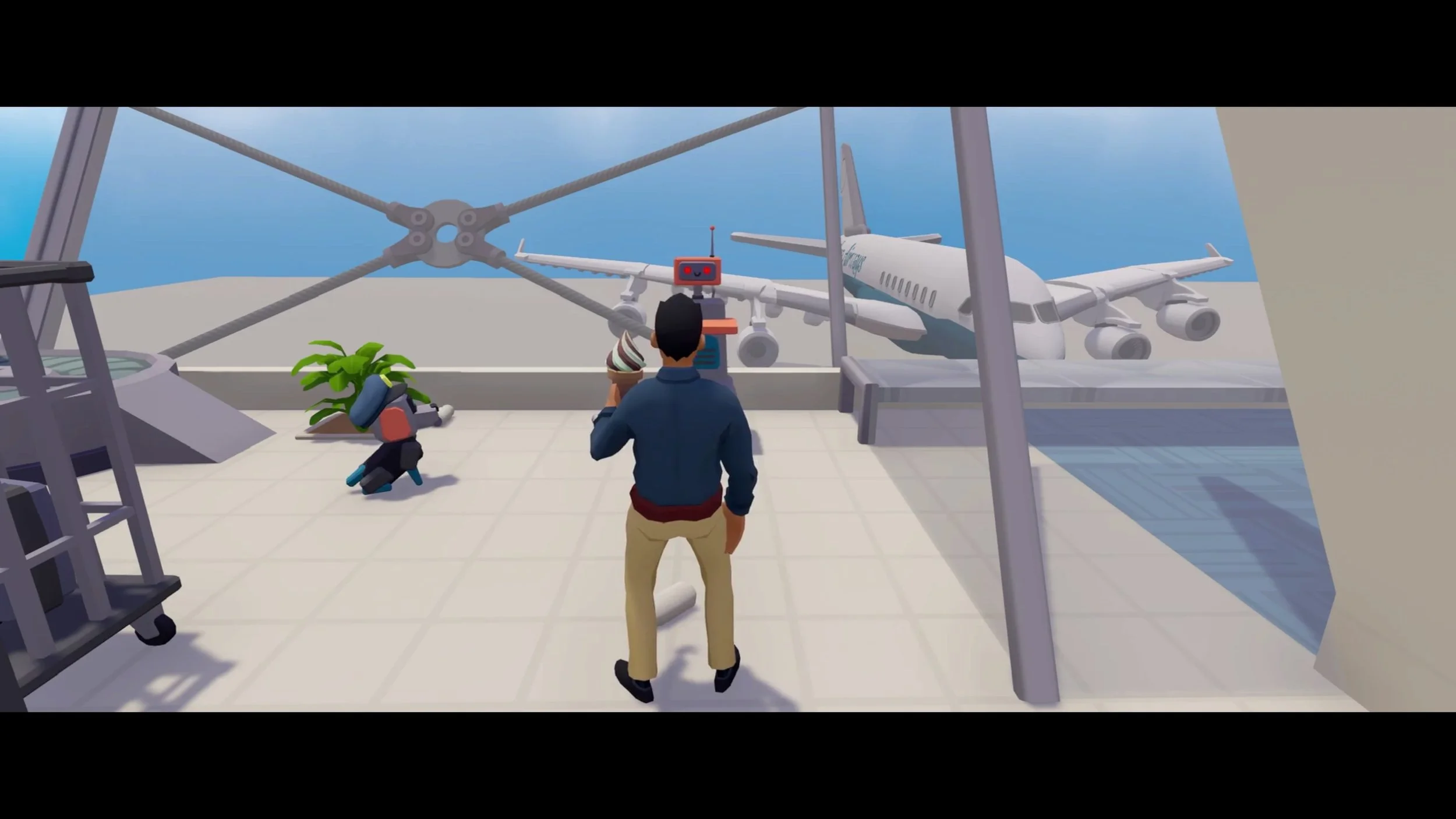
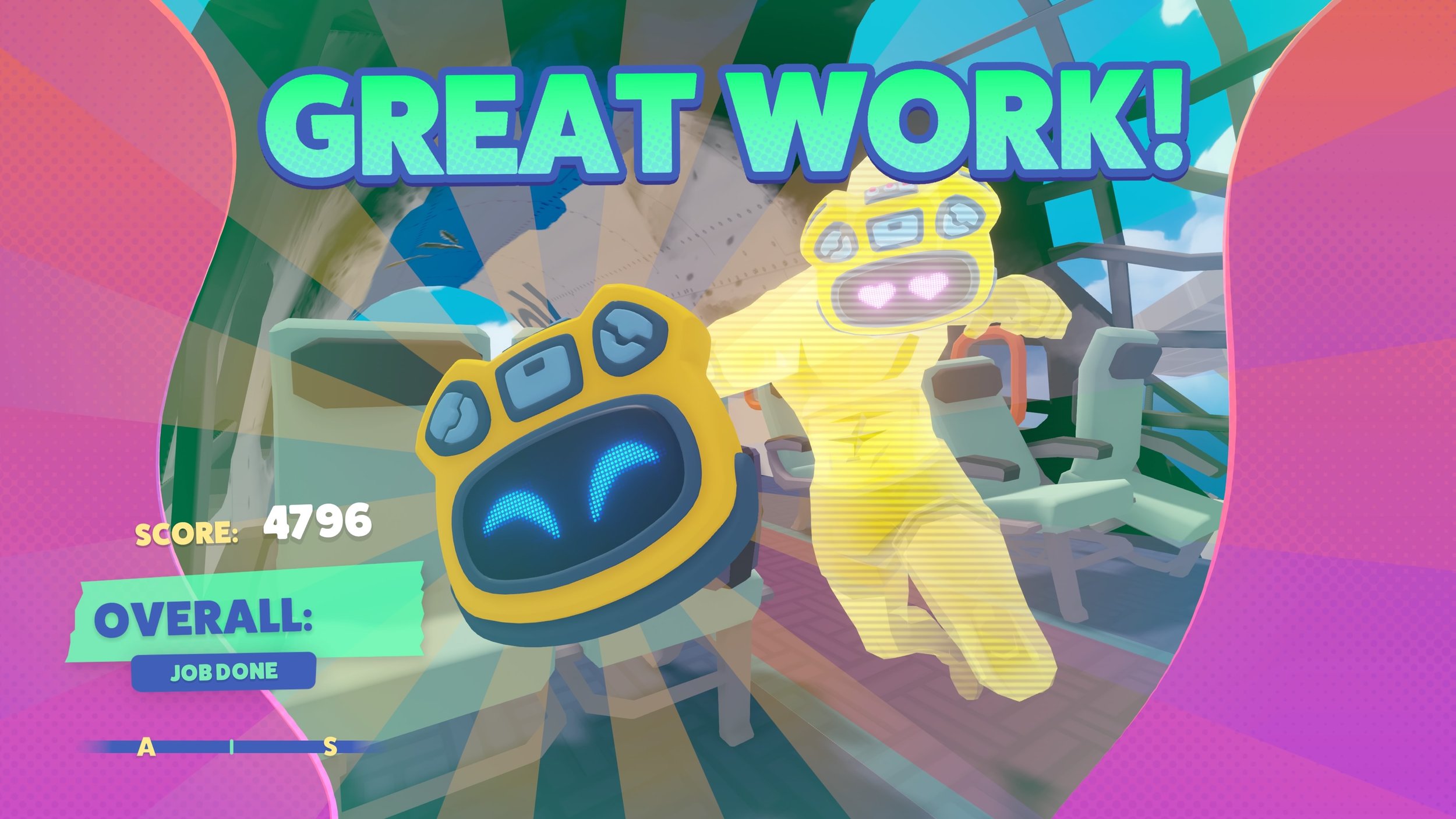
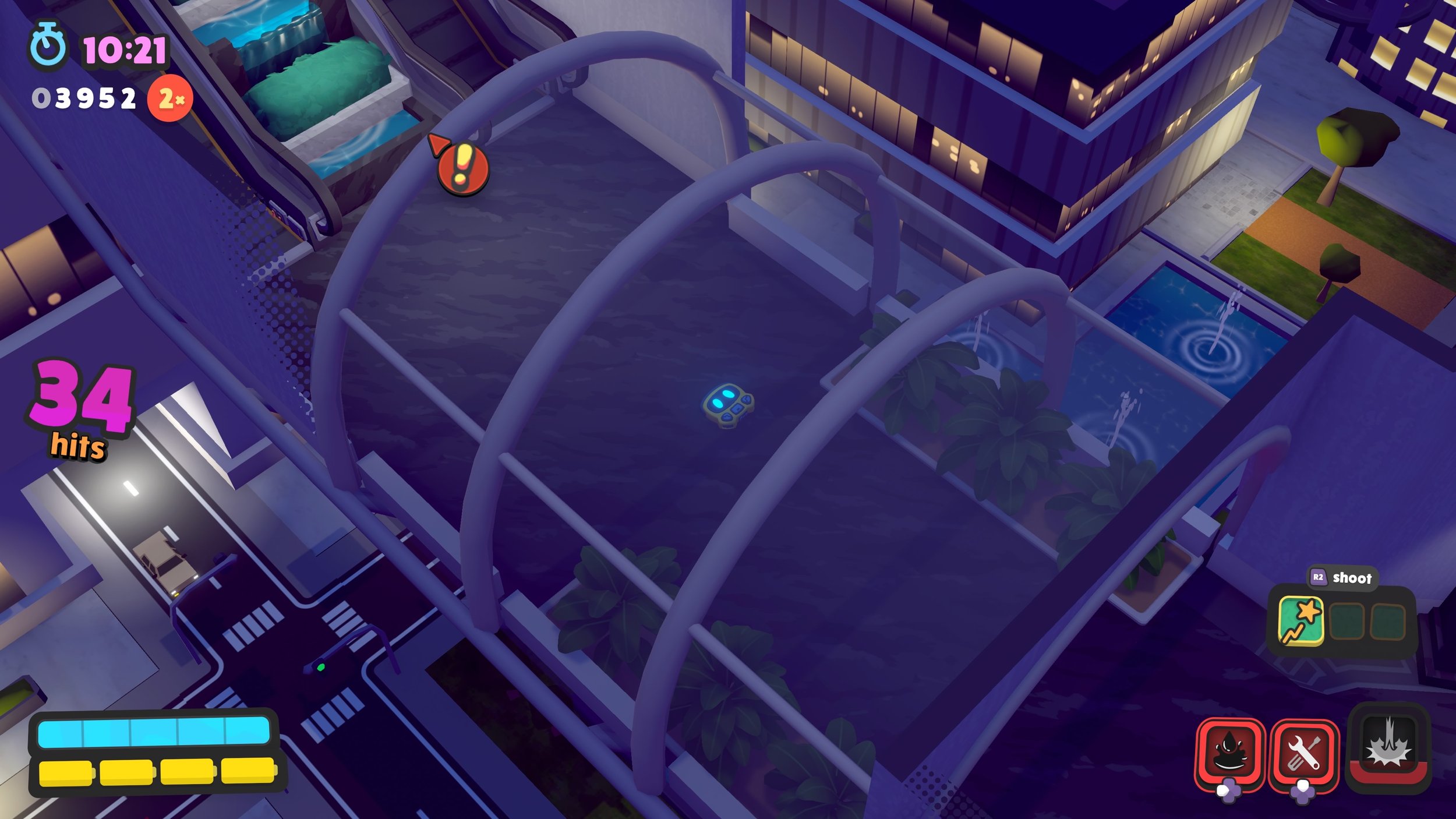
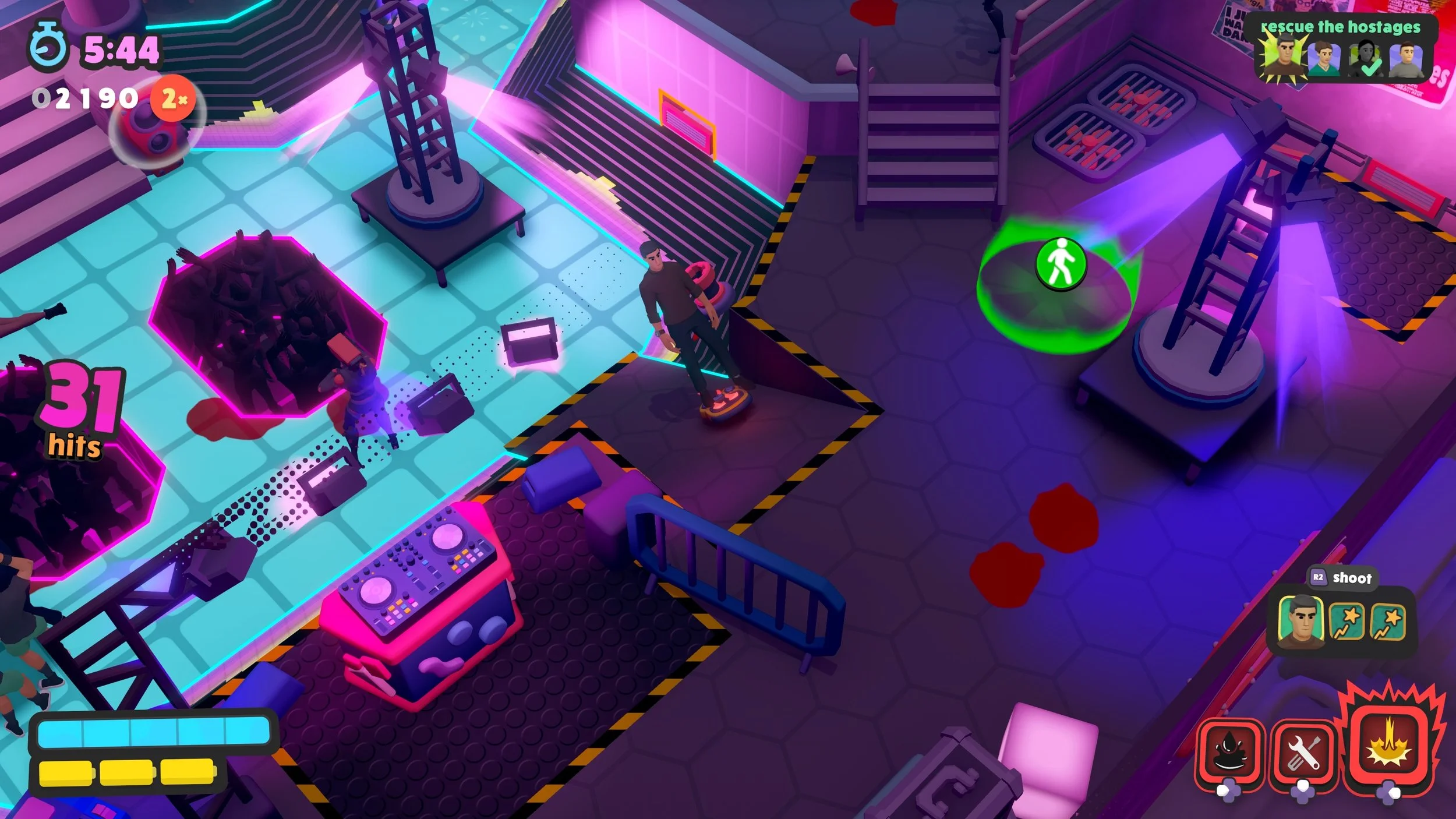
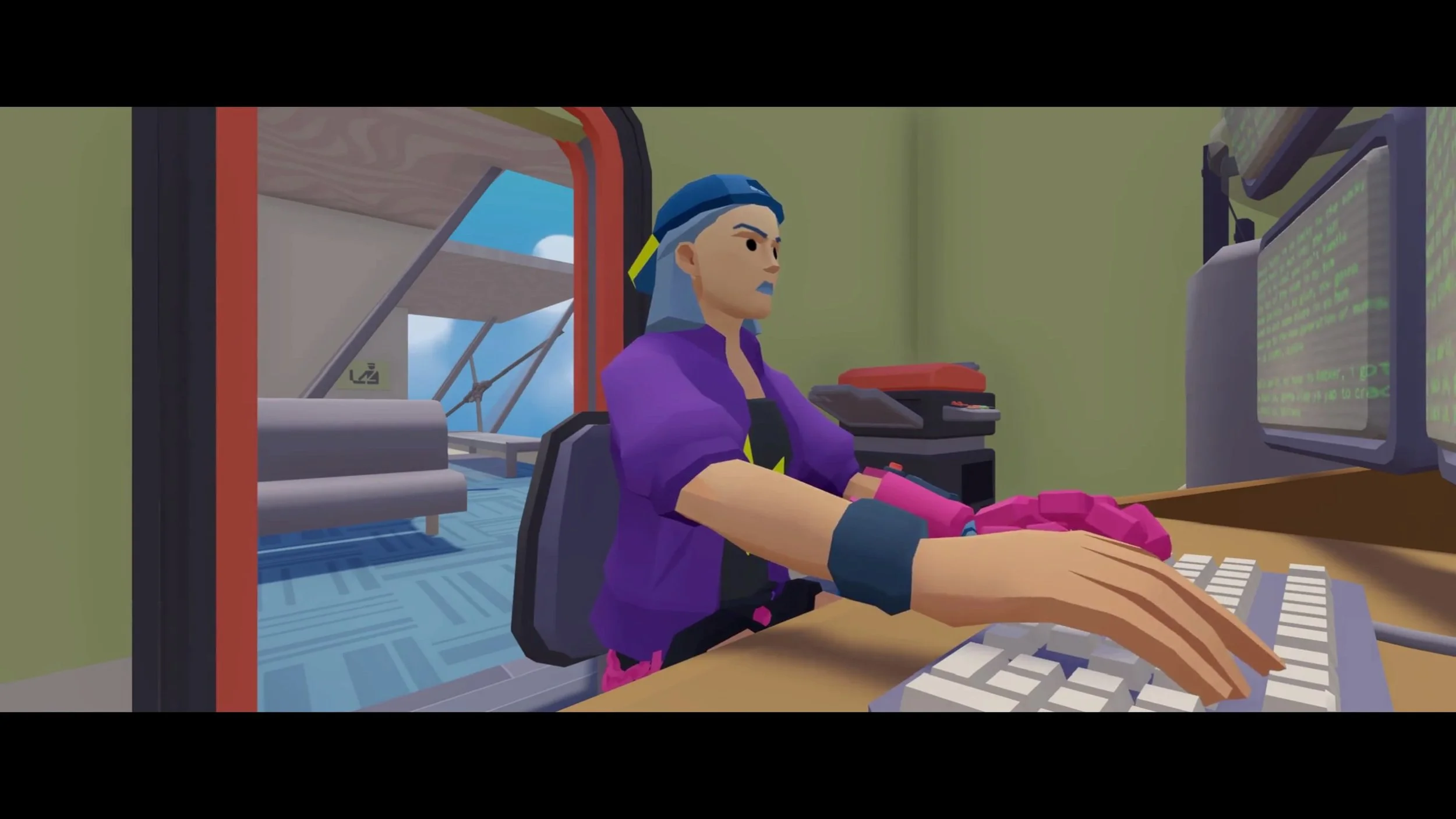
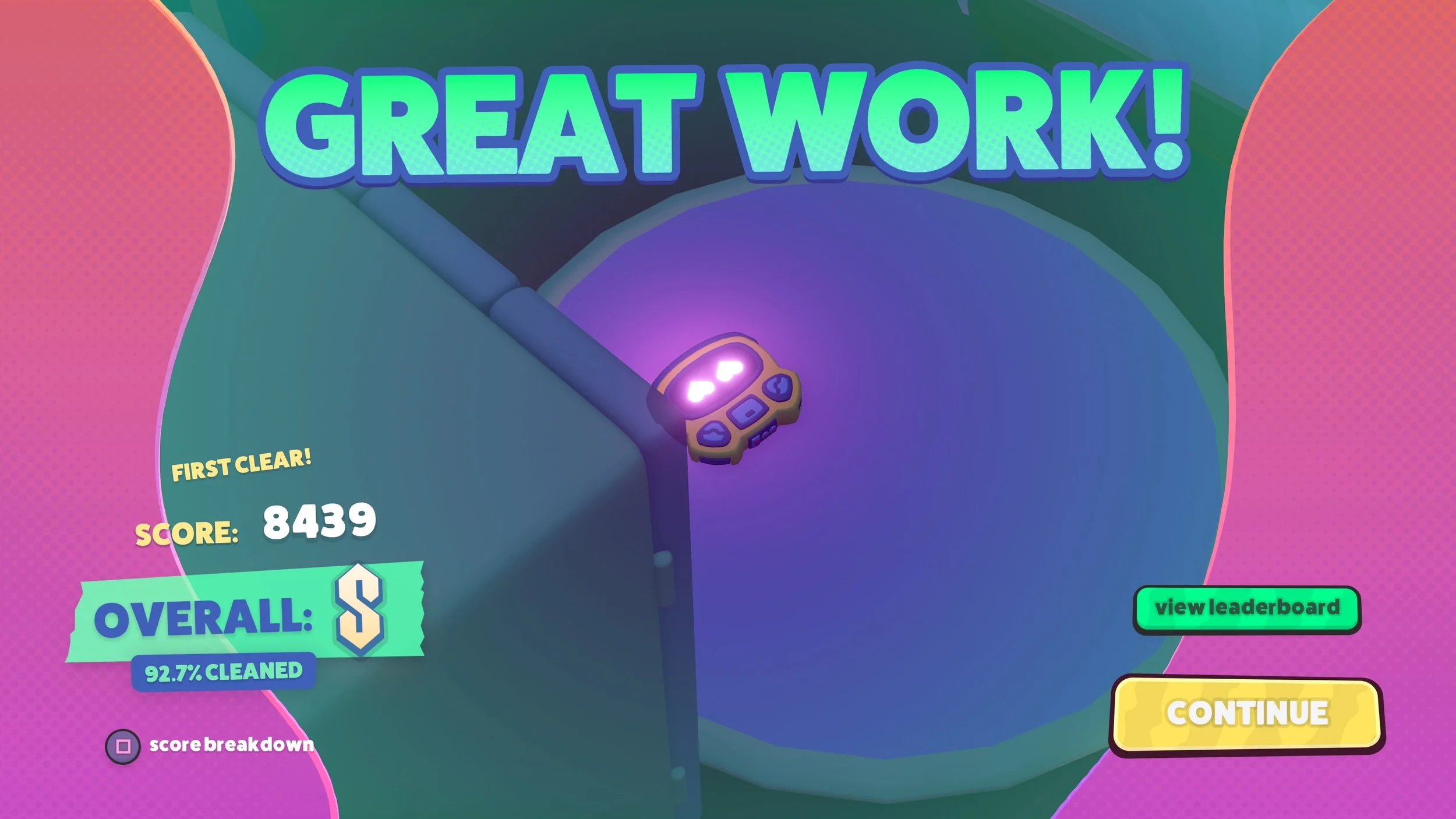
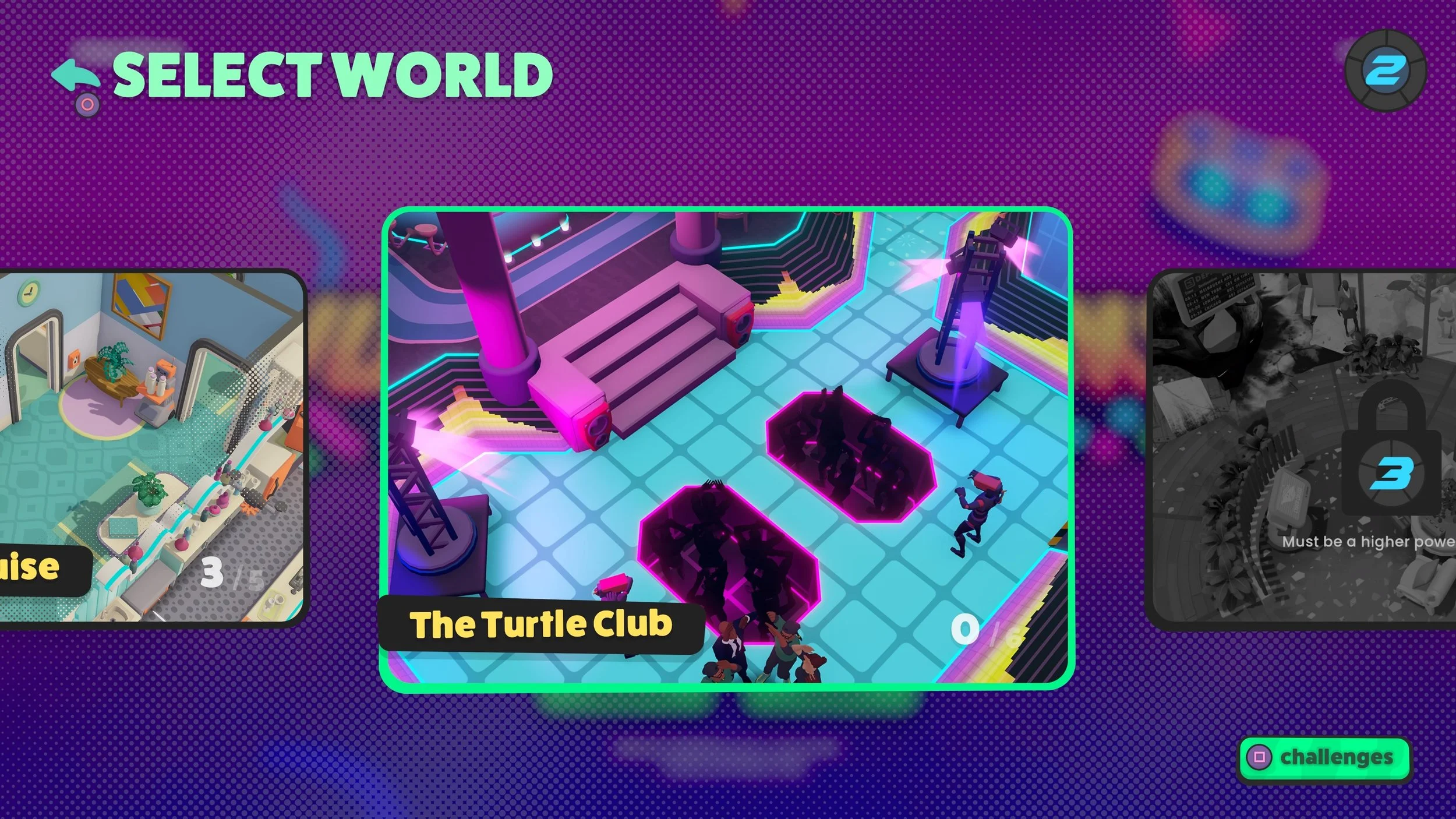
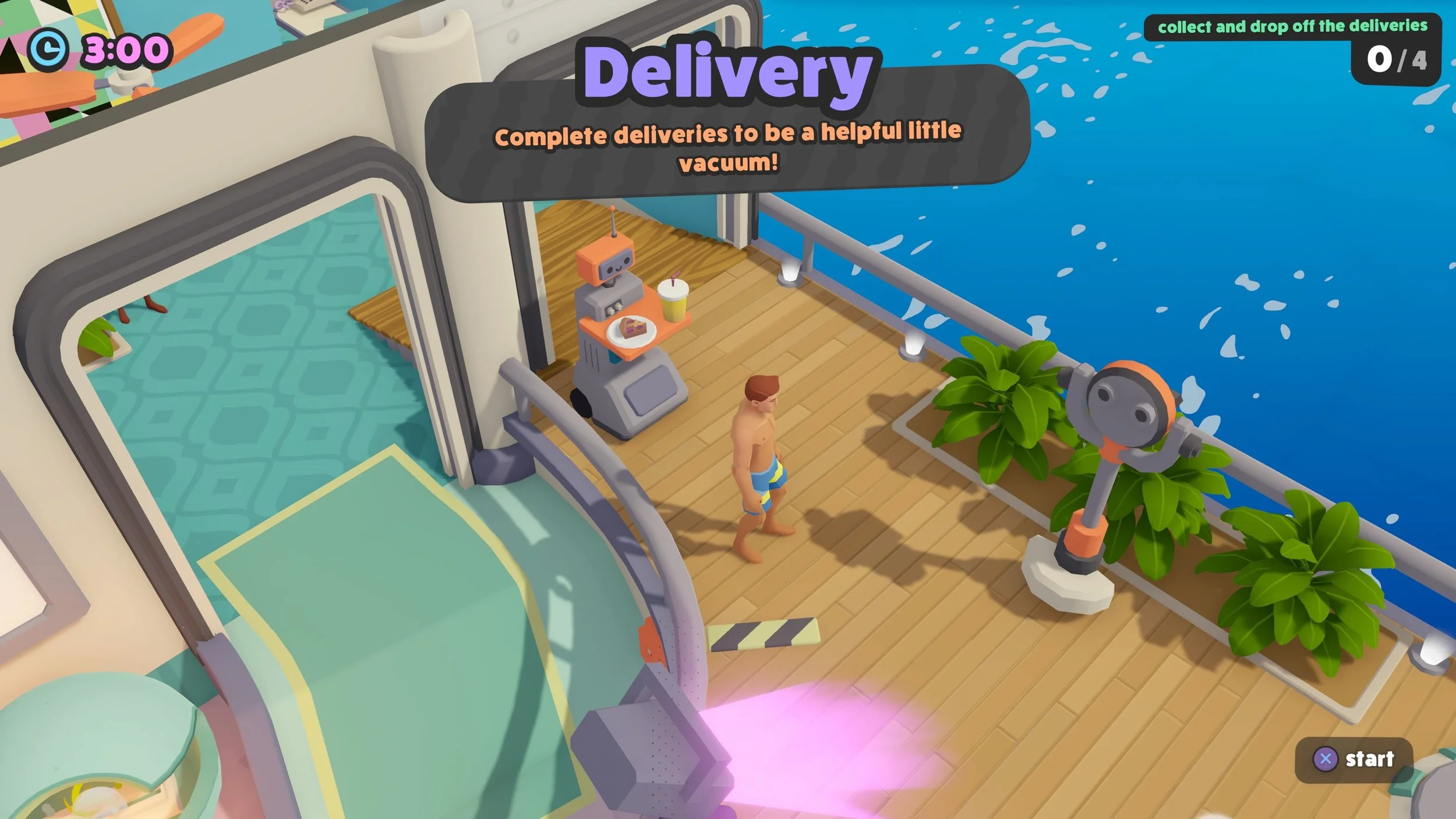
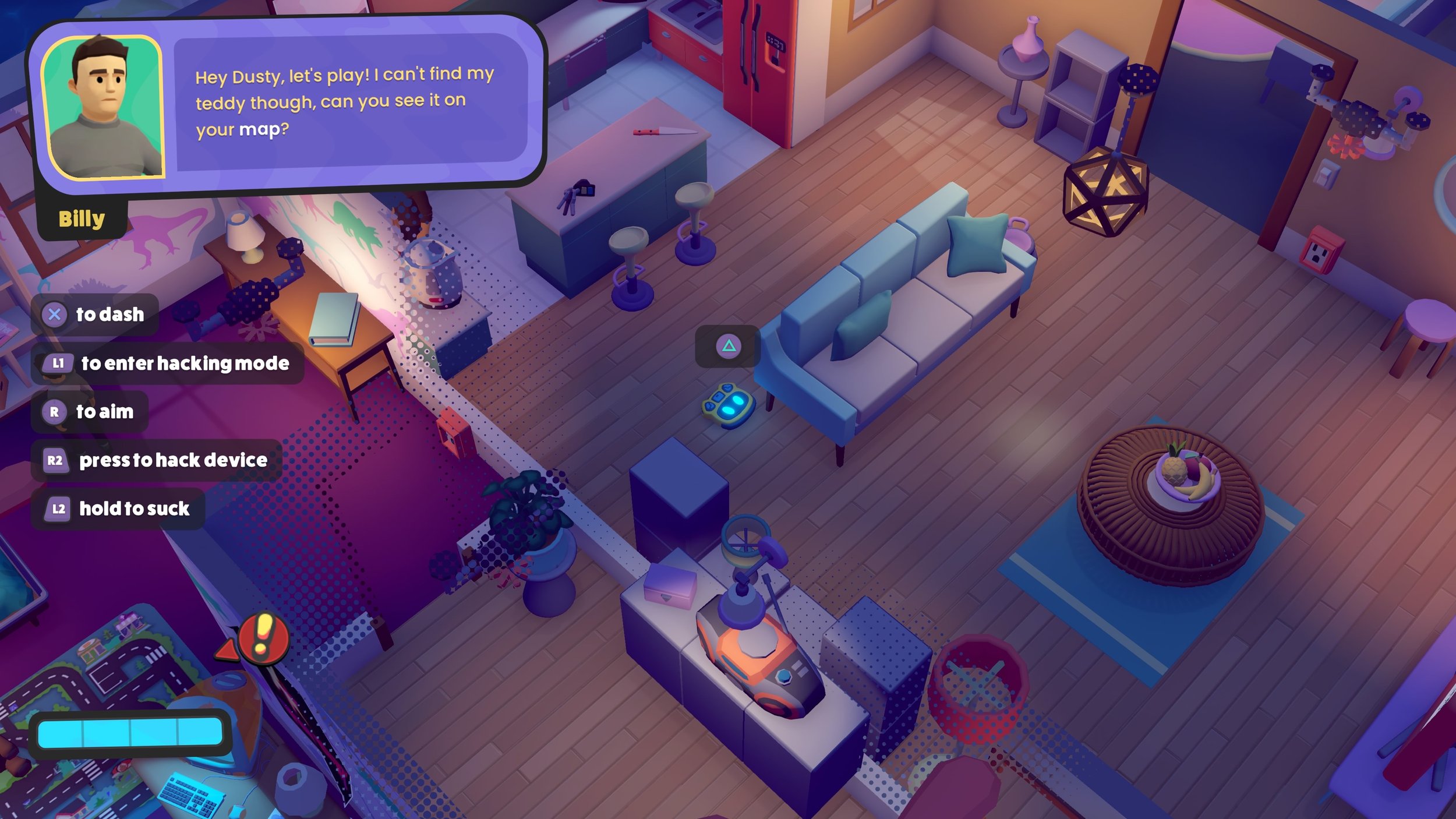
SCORES
GAMEPLAY - 6.5/10
VISUALS - 6/10
SOUND - 5/10
CONTROLS - 7/10
REPLAY VALUE - 4/10
OVERALL - 5.7/10
For more information on Justice Sucks, check out Samurai Punk’s site. Justice Sucks is available on consoles and Steam now. In the interest of transparency, we were provided a PS5 review code for this title. All screenshots were taken natively on the PS5.








With unapologetic violence and a goofy tone, Justice Sucks offers an easy video game experience, though it may not be quite memorable after completion.